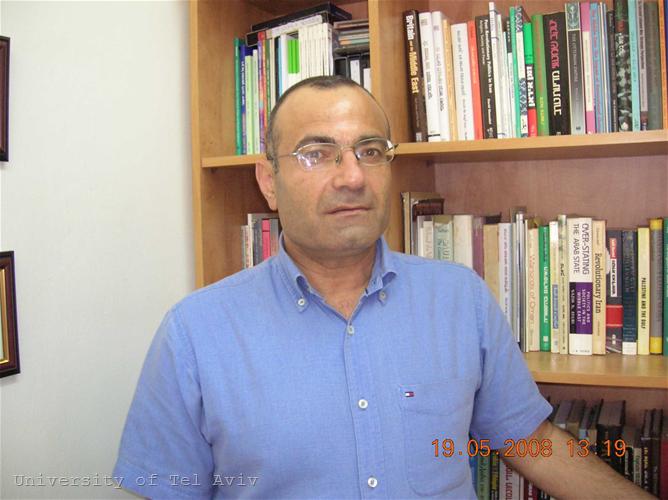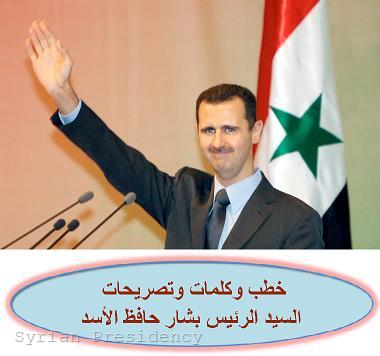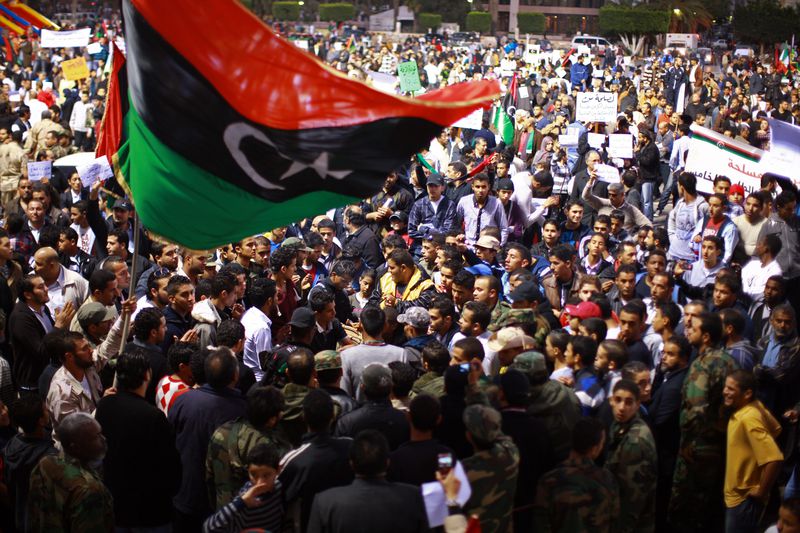The Friends of New Libya Counted Themselves
Ralitsa Kovacheva, September 3, 2011
 New Libya will be a country of reconciliation, tolerance and rule of law, the head of the Libyan National Transitional Council (NTC), Mustafa Abdel Jalil, promised to the international community. "The Friends of Libya", that were gathered at the Elysee Palace, in turn promised their full support for the Libyan transition but stressed that this process must be fully managed and implemented by the Libyan people.
New Libya will be a country of reconciliation, tolerance and rule of law, the head of the Libyan National Transitional Council (NTC), Mustafa Abdel Jalil, promised to the international community. "The Friends of Libya", that were gathered at the Elysee Palace, in turn promised their full support for the Libyan transition but stressed that this process must be fully managed and implemented by the Libyan people.
It is understandable the West to be fearing charges of trying to impose its model of  governance in Libya and, in parallel, to ensure its economic interests. Moreover, against the background of rumours that the “pie” had already been distributed: according to French newspaper Liberation, yet in April the rebels promised to attribute to France 35 percent of Libya's crude oil in exchange for French support for the TNC.
governance in Libya and, in parallel, to ensure its economic interests. Moreover, against the background of rumours that the “pie” had already been distributed: according to French newspaper Liberation, yet in April the rebels promised to attribute to France 35 percent of Libya's crude oil in exchange for French support for the TNC.
 “This is a Libyan-owned, Libyan-led process. The international community are there to help, there to give assistance, there to give advice, but the action and the plan is being drawn up and carried out by the Libyans, and that’s right,” British Prime Minister David Cameron said. Jointly with French President Nicolas Sarkozy, he hosted the Paris conference on Libya, which brought together over 60 representatives of various countries and international organisations.
“This is a Libyan-owned, Libyan-led process. The international community are there to help, there to give assistance, there to give advice, but the action and the plan is being drawn up and carried out by the Libyans, and that’s right,” British Prime Minister David Cameron said. Jointly with French President Nicolas Sarkozy, he hosted the Paris conference on Libya, which brought together over 60 representatives of various countries and international organisations.
Before the participants in the forum, Mustafa Abdel Jalil has submitted the TNC  plans to form an interim government to work for unification of the Libyan people and for rebuilding of the country. Mr Jalil has promised a new constitution to be worked out and elections to be held in the course of a year and a half.
plans to form an interim government to work for unification of the Libyan people and for rebuilding of the country. Mr Jalil has promised a new constitution to be worked out and elections to be held in the course of a year and a half.
 “In view of the expectations expressed by the Libyan delegation, the participants emphasised that the United Nations will play a central role in coordinating international support for the political transition in Libya and the reconstruction of the country. They welcomed the proposals to this effect put forward by UN Secretary General Ban Ki-moon and expressed their support for a new UN Security Council resolution which will endorse these proposals,” the conference's conclusions state.
“In view of the expectations expressed by the Libyan delegation, the participants emphasised that the United Nations will play a central role in coordinating international support for the political transition in Libya and the reconstruction of the country. They welcomed the proposals to this effect put forward by UN Secretary General Ban Ki-moon and expressed their support for a new UN Security Council resolution which will endorse these proposals,” the conference's conclusions state.
In an expression of support, the international community has already unblocked 6 billion dollars of Libyan assets, frozen under UN resolutions. For its part, the TNC has committed to use the funds “on behalf of the Libyan people in an accountable and transparent manner,” the document notes.
Another important message from the meeting was Libya's return as a full  member of the international community. “Nearly 70 countries so far have recognised the TNC, including 18 African nations, the Arab League, and now Russia. It is time for others to follow suit,” US Secretary of State Hillary Clinton said after the forum. The participants called on the TNC to obtain a seat in the UN as a legitimate representative of the Libyan people.
member of the international community. “Nearly 70 countries so far have recognised the TNC, including 18 African nations, the Arab League, and now Russia. It is time for others to follow suit,” US Secretary of State Hillary Clinton said after the forum. The participants called on the TNC to obtain a seat in the UN as a legitimate representative of the Libyan people.
 For his part, UN Secretary General Ban Ki-moon told the forum that the most immediate challenge in Libya was on the humanitarian front. Among the areas for assistance, as identified by the TNC, he highlighted transitional justice, policing, election preparation and constitution-making.
For his part, UN Secretary General Ban Ki-moon told the forum that the most immediate challenge in Libya was on the humanitarian front. Among the areas for assistance, as identified by the TNC, he highlighted transitional justice, policing, election preparation and constitution-making.
European Commission President Jose Manuel Barroso welcomed “the early  launching of a UN-led Joint Needs Assessment with advance teams to be deployed shortly. The EU stands ready to participate in these efforts.” Mr Barroso recalled that the EU was the biggest donor of humanitarian aid to Libya with so far over 150 million euros spent. He also promised technical assistance for “developing an effective public service” of the new Libyan state.
launching of a UN-led Joint Needs Assessment with advance teams to be deployed shortly. The EU stands ready to participate in these efforts.” Mr Barroso recalled that the EU was the biggest donor of humanitarian aid to Libya with so far over 150 million euros spent. He also promised technical assistance for “developing an effective public service” of the new Libyan state.
 Meanwhile, “We are determined to continue with NATO strikes for as long as Mr Gaddafi and his supporters represent a threat to Libya," French President Nicolas Sarkozy said. As if in response to these words, Muammar Gaddafi sent a message, broadcast by a satellite TV, saying: "Let it be a long battle ... If Libya goes up in flames, who will be able to govern it? Let it burn!” From his secret shelter Gaddafi threatened to sabotage oil pumping and warned the new government to prepare itself for a gang war and urban warfare.
Meanwhile, “We are determined to continue with NATO strikes for as long as Mr Gaddafi and his supporters represent a threat to Libya," French President Nicolas Sarkozy said. As if in response to these words, Muammar Gaddafi sent a message, broadcast by a satellite TV, saying: "Let it be a long battle ... If Libya goes up in flames, who will be able to govern it? Let it burn!” From his secret shelter Gaddafi threatened to sabotage oil pumping and warned the new government to prepare itself for a gang war and urban warfare.
Against this background, the following words of US Secretary of State Hillary Clinton sounded quite realistic: “We know from experience that winning a war is no guarantee of winning the peace that follows.” The references to the bitter American lessons from Iraq and Afghanistan are obvious. However, they apply not only to the US but to the entire international community. Libya and the Arab spring as a whole are a test for all - be it the people fighting for democracy to be able to build it or the West being able to comply with the principles it is proclaiming while helping.
In this sense, the Chinese stance on Libya is curious and indicative, as described by Jonas Parello-Plesner, Senior Policy Fellow with the European Council on Foreign Relations. On the one hand Beijing is seeking to win a place for its business in the reconstruction of Libya. On the other, however, it refrains from commenting on issues such as democratic transition and the people power in the Chinese society, and prefers to launch the thesis that overthrowing of dictators leads to chaos.
“It is becoming increasingly difficult for China to make friends abroad and protect growing commercial interests while conveying the right narrative at home,” the author commented. However, it is difficult to control “the right narrative” in the blogosphere, as shown by the Arab spring, as there can be found sarcastic comments like this: in response to official Chinese position that the Libyan people's choice should be respected, a Chinese blogger asked “When can you respect the Chinese people's choice?” 
The next meeting on Libya will be held in New York in late September. Since the current contact group on Libya “has fulfilled its goals”, it will be replaced by a “Group of Friends of the New Libya,” the Paris Conference decided.
 | © University of Tel Aviv
| © University of Tel Aviv | © Syrian Presidency
| © Syrian Presidency | © UN
| © UN